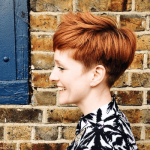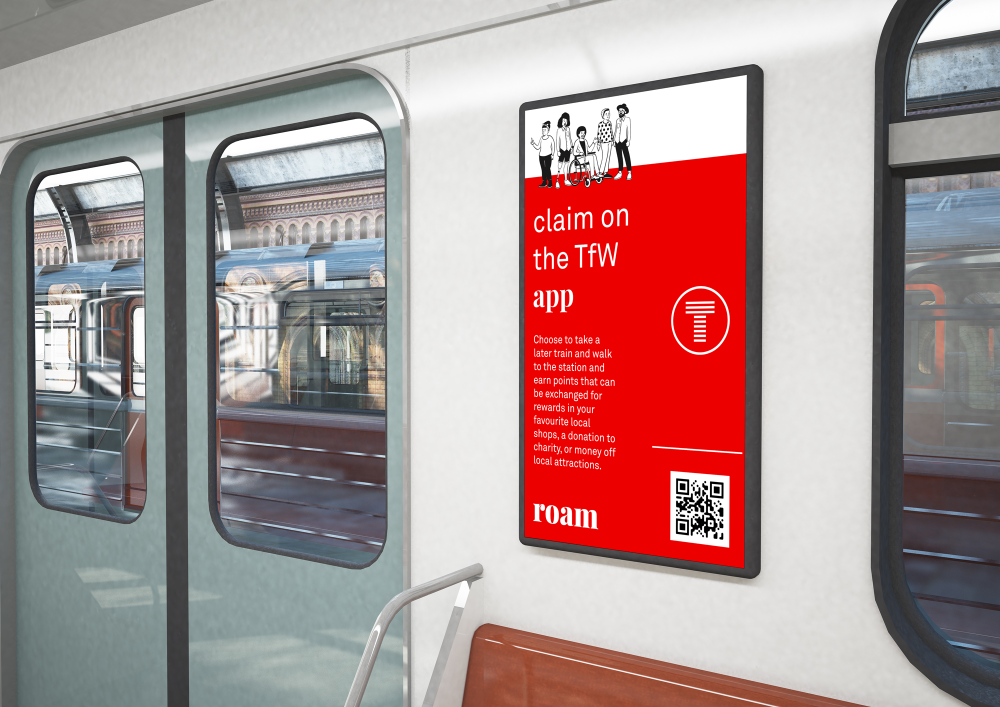There is a need for innovative approaches, and now more than ever we need to encourage greener active travel, and to align with the Future Generations Act which requires Wales to think sustainably, to think about the long term impact of their decisions, to work better with people, communities, and to address the demands of climate change.
Introducing Roam/Taith, a unique product built over the 12 week accelerator programme.
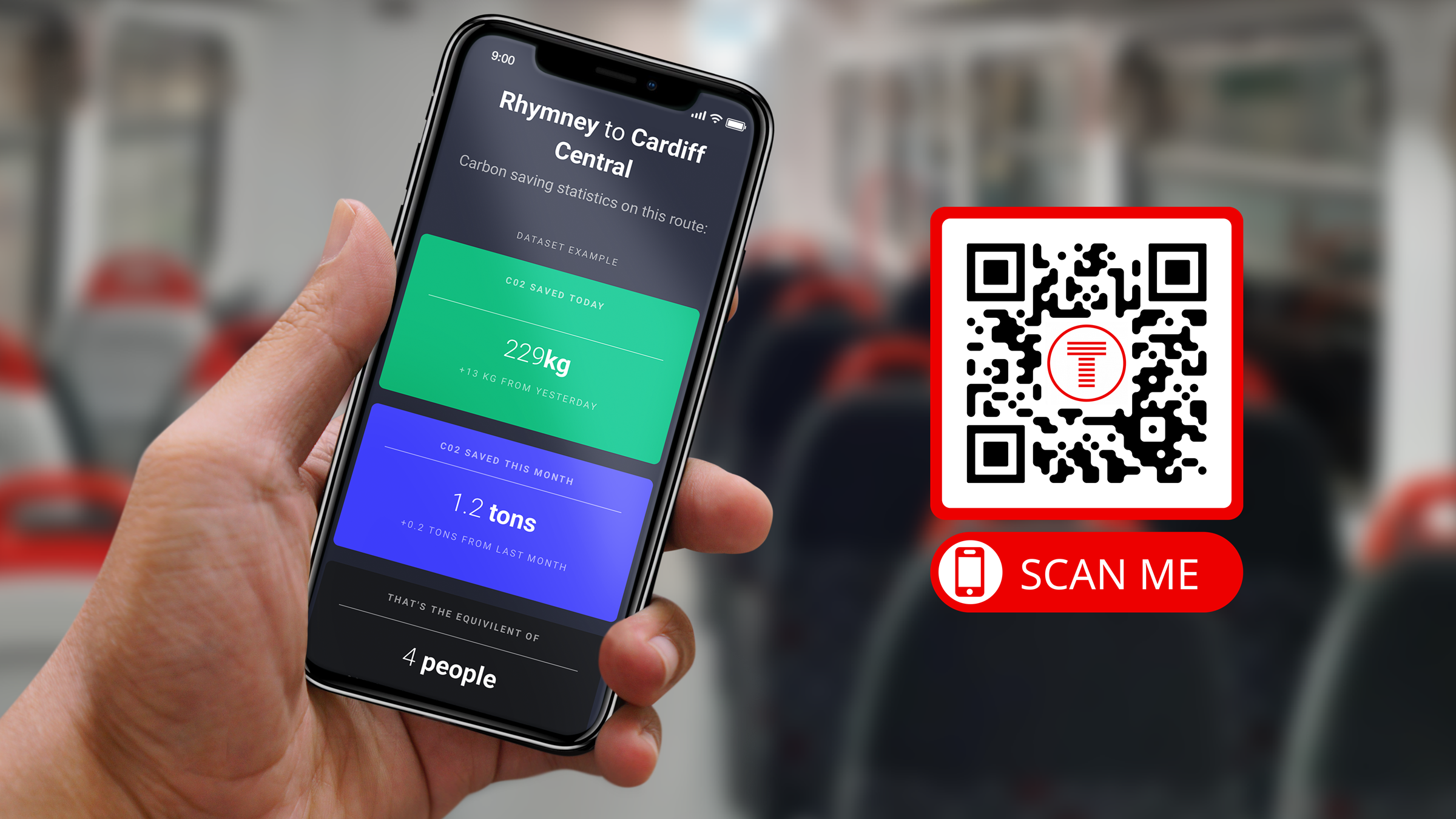
We want to change the habitual behaviour of rail passengers to impact their personal C02 usage.
Lets start from the beginning...
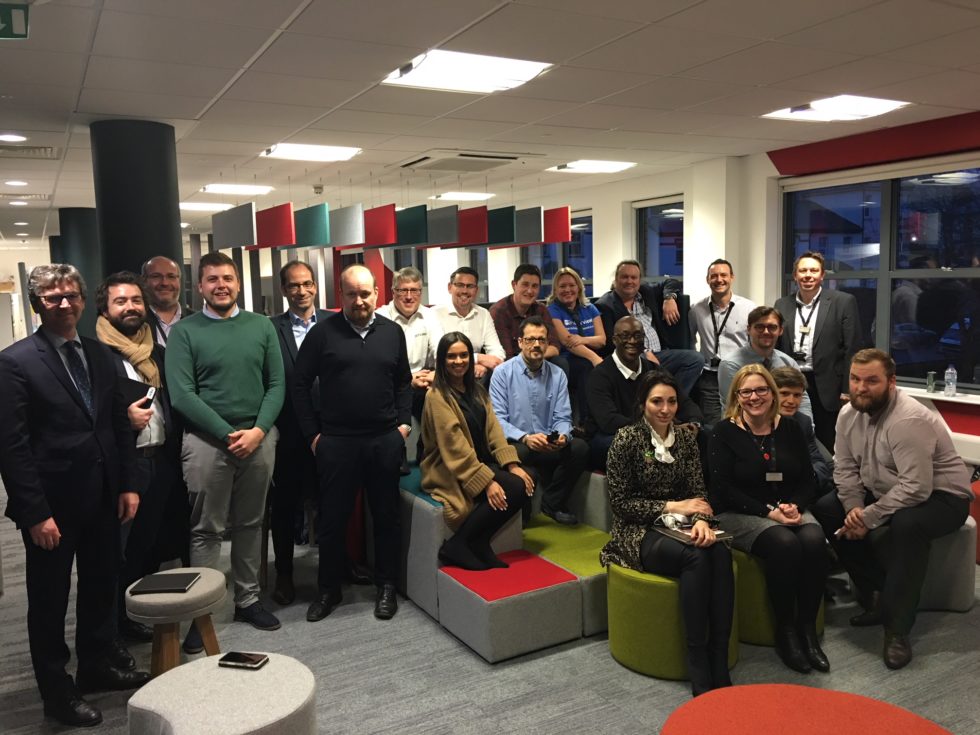
Why we originally applied to the programme:
It is always our intention to build products we enjoy working on as a team; this opportunity allows us to build something that not only aligns with our ethos but allows us to push the boundaries of what’s technically possible. Collaborating with TfW, a national organisation, enables us to deliver real impact and make a difference to people’s lives.
What we learnt in the early weeks - Research:
When we initially joined the accelerator programme, our concept was just an idea and a hypothesis. During the first few weeks, we focused on refining our approach to meet the needs of the challenge. We worked with the AltLabs team and initial TfW stakeholders to identify where our concept aligned within the challenges identified.
We began by outlining as many possible user scenario cases as possible, where a digital product could help. Then cross-referenced with the challenge cases we discovered in the first few weeks of the programme.
We were soon able to narrow our focus on two areas;
- Education on how small personal acts can affect the carbon emissions on a user’s journey, predominantly focussed on rail travel and,
- Encouraging active travel, to and from stations and beyond.
Both of these outputs aimed to change the habitual behaviour of rail passengers to impact their personal C02 usage, and allow TfW to access data on how users interact with the rail network.
From here, we began with one hypothesis;
‘People want to be rewarded for green and active travel on TfW services.’
We worked with TfW stakeholders on conducting primary research to identify if people wanted to be rewarded, and if so, how. We created a questionnaire to be shared internally within TfW and externally to passengers.
The aim was to collect data on a series of topics;
- How passengers get to and from stations, their barriers to green travel and,
- If/how passengers would like to be rewarded.
Results from this research indicated that 92.6% of passengers lived under 5 miles of their local station, yet only 44.1% used carbon-neutral forms of transport to get to these stations. We also discovered that 83.8% of passengers surveyed would like to be rewarded for using TfW services and that 60.8% would like to know more about improving their environmental impact on all journeys. Further research also indicated that 65% of under 25-year-olds will prioritise greener transport methods, with this number increasing the younger the participant.
How this shaped what we worked on - Ideation:
We began creating a concept that aligned with the key discoveries in the research phase.
The product had to promote and reward users for greener and active travel, but it also had to:
Be accessible - given only 4% of passengers use the current TfW app we needed to build something with a larger outreach.
Be simple to use and understand - the information on the platform had to be easy to digest, so we needed to translate what x amount of C02 was equal to.
Be accurate - for users to understand the results and for the platform to reward users, the data on C02 savings had to be accurate.
Integrate with existing tech - with a new TfW native app being launched, this concept had to seamlessly integrate, eliminating the need for another download.
Reward users with incentives they want - past experience in similar products tells us that the rewards need to align with the needs and values of the user.
Have bilingual/multilingual capabilities - in line with the government's 2050 guidance.
Gamify the process of saving C02 - allowing users to see their progress compared with friends, family and other passengers.
Have a positive outcome - the user has a sense of achievement, they are contributing to a wider purpose in their everyday life. Provides a feel-good factor.
Align with the outcomes of the Future Generations Act - The Act ‘requires public bodies in Wales to think about the long-term impact of their decisions, to work better with people, communities and each other, and to prevent persistent problems such as poverty, health inequalities and climate change.’ It’s an opportunity for innovative thinking, to prevent long term problems, meet long term needs, and collaborating.
Report on habitual data - Supply TfW with key information about how passengers interact with the service.
How the product would be a benefit / have an impact - Development:
The Proof of Concept (PoC) we developed during the 12-week accelerator consisted of 3 unique selling points (UPS):
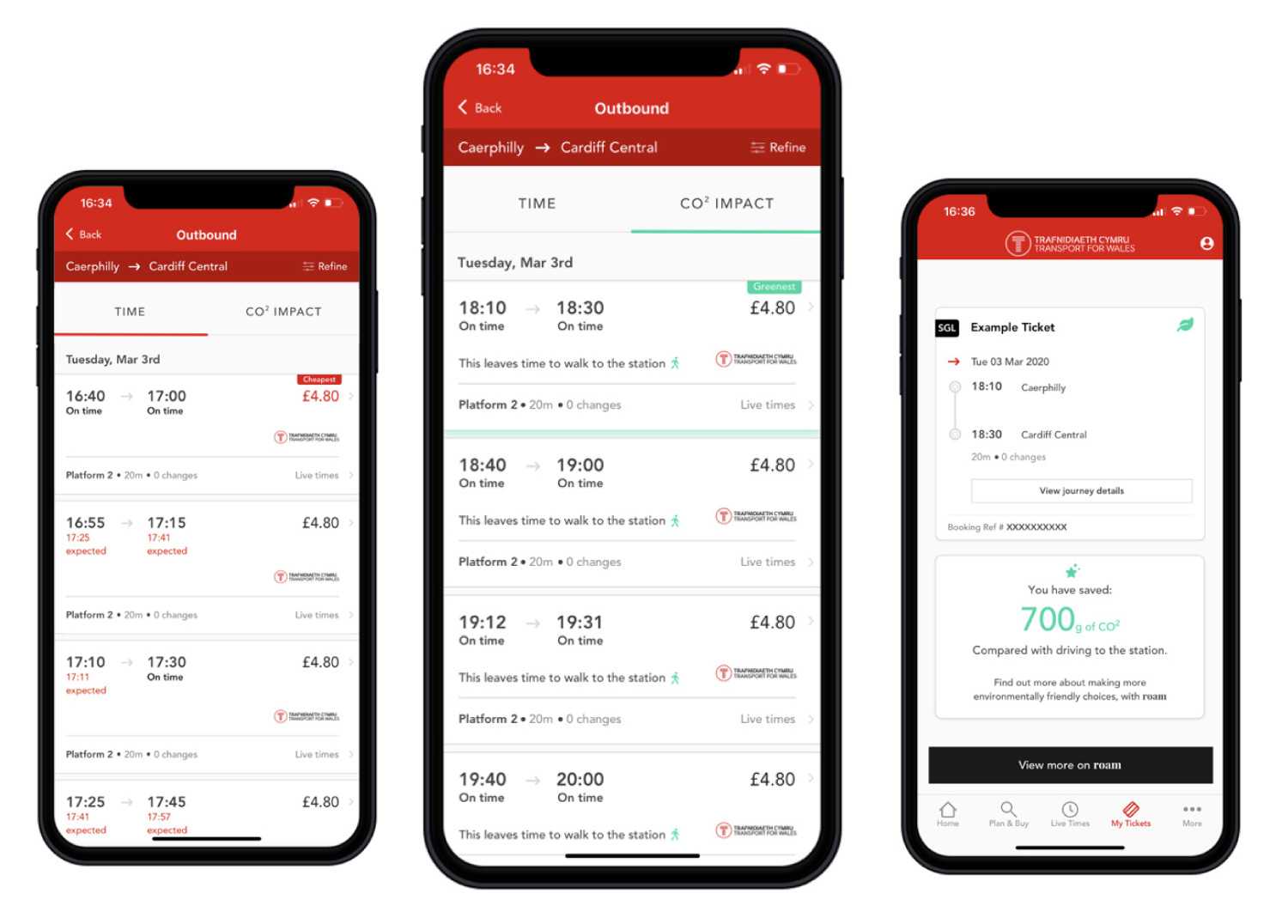
At the core of the PoC will sit an algorithm that cross-references the user’s location with the train station of choice and a database of C02 data from the engines on that specific line. By calculating the user’s location and the C02 impact of each journey we’re able to display the greenest route a user could take. These ‘greener options’ will be displayed alongside the train times in the new TfW app (using an integration in partnership with app builders Imaginet).
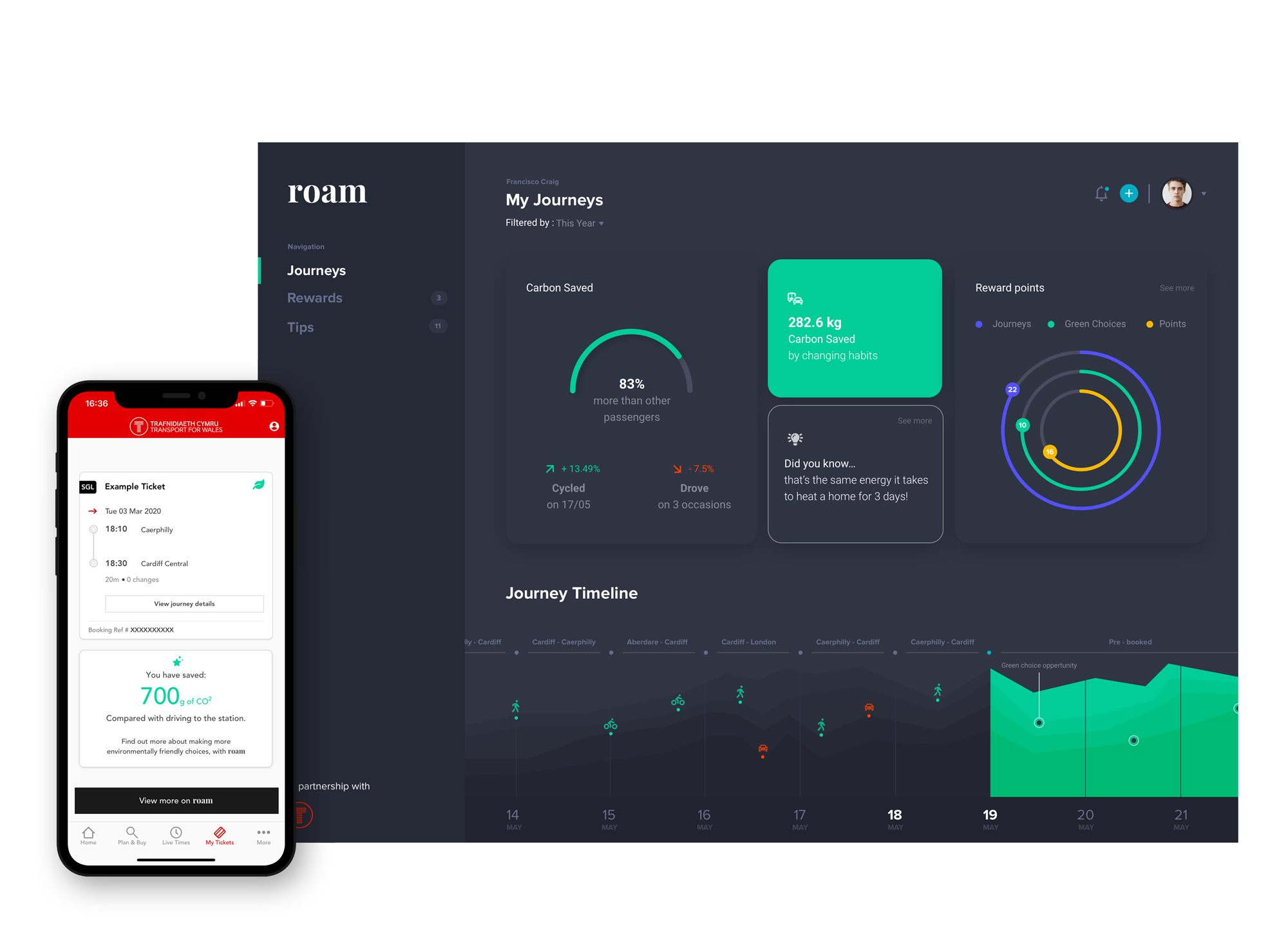
During the ticket purchasing process: An example of how a user could make a small change would be by displaying details of a later train, encouraging the user to walk or cycle to the station, as well as displaying the engines with less C02 output. The algorithm will cross-reference the journey to the station via walking, using Google Maps API, to drive and reward the user based on the C02 saving. By making these green choices a user will collect points, which they can save up to exchange for various rewards. Three example reward types include:
- Discounts at local attractions who are partners with TfW (Cadw, for example).
- Discounts at local businesses (local to the user).
- Converting points for donations to charities/social good organisations.
On-board: By 2024, when the new carriages arrive, a cumulative tally of the green choices and C02 impact will be displayed on digital totems on board the carriage. Until then, we can still allow passengers to easily find this information by creating a unique QR code to be displayed on each line. The users will be able to scan the code with their phone and find out carbon footprint information about their journey, and a live tally of other passengers who have made ‘green choices’ that day. This allows the reach of the information to a much wider audience, who aren’t currently using the app. The unique page that is displayed will prompt users to download the TfW app and start collecting points based on their carbon saving efforts.
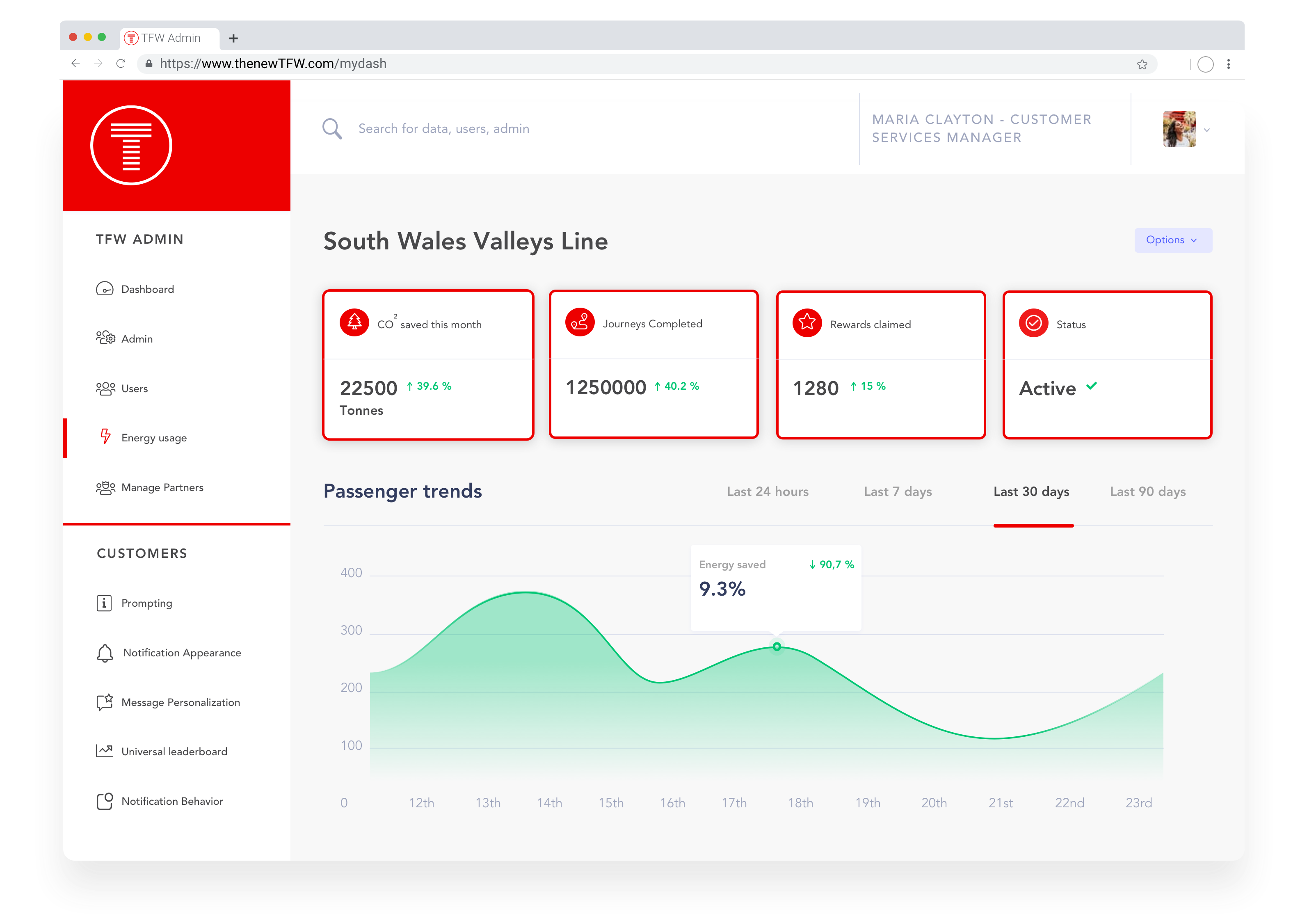
As a product for passenger usage, we’ll be able to gather vast amounts of data, which will be fed into a TfW admin web app. This will allow the organisation to see data on things such as - environmental statistics, user behaviour, and user uptake. Which will allow decision-makers to make better data-led improvements to the digital platform and network.
Inform = Awareness
Educate = Usage
Learn = Data
Deliver = Improvements
How this progressed, who we worked with, what we did - Timeline:
9th Jan - Started programme
17th Jan - the first time we ‘pitched’ the idea after some time hearing from TfW internally, included Keolis representatives
16th Jan - correspondence with Daniel at Keolis:
We can see that there is something to do for your company and for our customers, but we don’t know exactly what and how. Please let us know how you go forward on your project, as I can relay this to our subsidiaries in other countries. And if you have a presentation, please don’t hesitate to share it with us. Cc. are all our CX Directors in the UK Constantina for Nottingham William for the DLR in London Matt for Keolis UK
22nd Jan - meeting at St Mary’s House with TfW: David, Faye, Soizic, Sophie, Chris, Teleri
23rd Jan - created the first iteration of an in-depth MoSCoW
28th Jan - google form sent out to an external audience
28th Jan - meeting with Faye
3rd Feb - Big Lemon had a conversation with Amber Energy about them being involved with the project
11th Feb - Catch up call with Chris Price
19th Feb - meeting at St Mary’s House with Rebecca Wilson
25th Feb - call with Imaginet
5th March - pitched our idea to Teleri Evans, Digital Marketing Manager, and received feedback on 6th March
12th March - last day of the programme.
20th March - Call with Howard Jacobson, Business Advisor (Growth), Business Wales
The Future - roadmap and our pitch presentation!
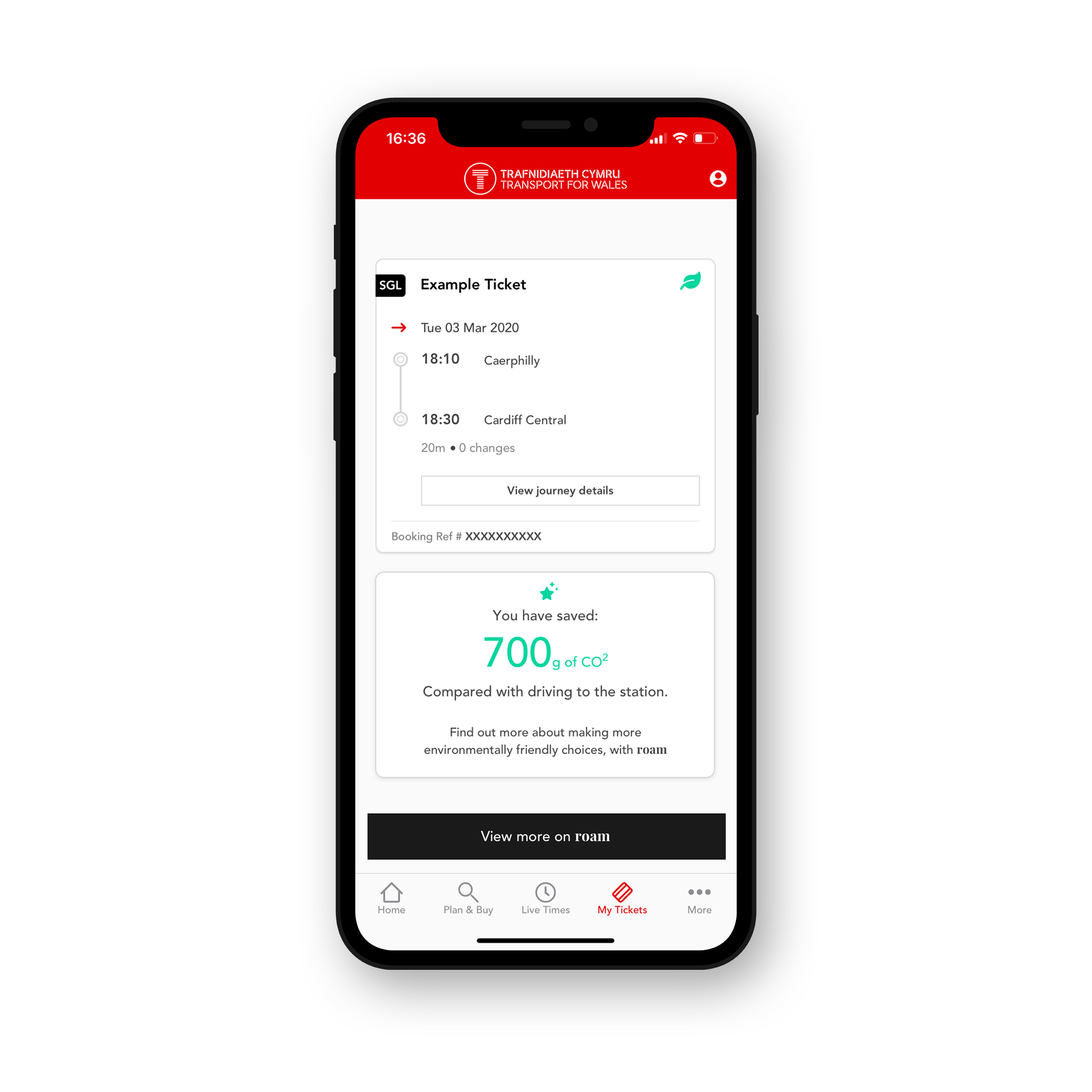
Funding to develop an MVP For the concept to grow further, we would need to raise funding to develop the concept. Having thoroughly tested the market in the prior stages, we’re confident that there’s a requirement and need for a service like this for the rail industry.
Test on a local line and make iterations and fixes Once the MVP is ready for Beta testing, we would be prepared for a further testing and iteration round, readying the product for a national rollout.
Nationwide rollout with Keolis Amey, and other providers Once all the bugs have been addressed, and features of the product defined we will be ready for a national rollout. Our team will support all rollout teething issues and continue further bug fixing as the product is used in the wild.
Scope for integration with more partners and onward travel providers Our ideas for this service don’t end here, we’re determined to continue adding features and unique selling points to the concept. We’d aim for more integrations into active travel, and further collaborations with local and national partners, ensuring this product meets the needs of the users.
Larger release with Keolis Amey Once the product is up and running in Wales as a BeachHead market, we would want to explore extending the service UK wide and beyond.
Thank you to everyone who's offered us their time, energy and support during the 12 weeks.
Faye Nield - Future Generations Manager Sophie Duggan, Environmental Co-ordinator Soizic Renault - Future Generations Officer David Perrett - Procurement Manager Teleri Evans, Digital Marketing Manager Adam Kerrigan - Imaginet, Project Manager / Product Owner Daniel Courcol - Customer Experience Director Group, Keolis Gareth Morgan - Safety and Sustainability Director Helen Mitchel - Digital Transformation Director Chris Price - Digital Marketing Manager Rebecca Wilson - Partnerships Marketing Coordinator Paul Tapley - Head of Marketing
Thank you to Mike Davies, Barry Lloyd, Imran Anwar, Charlotte Rogers, Adam Foster, Colin Lea and the rest of the TfW engagement and AltLabs team for sharing our enthusiasm on this journey!
